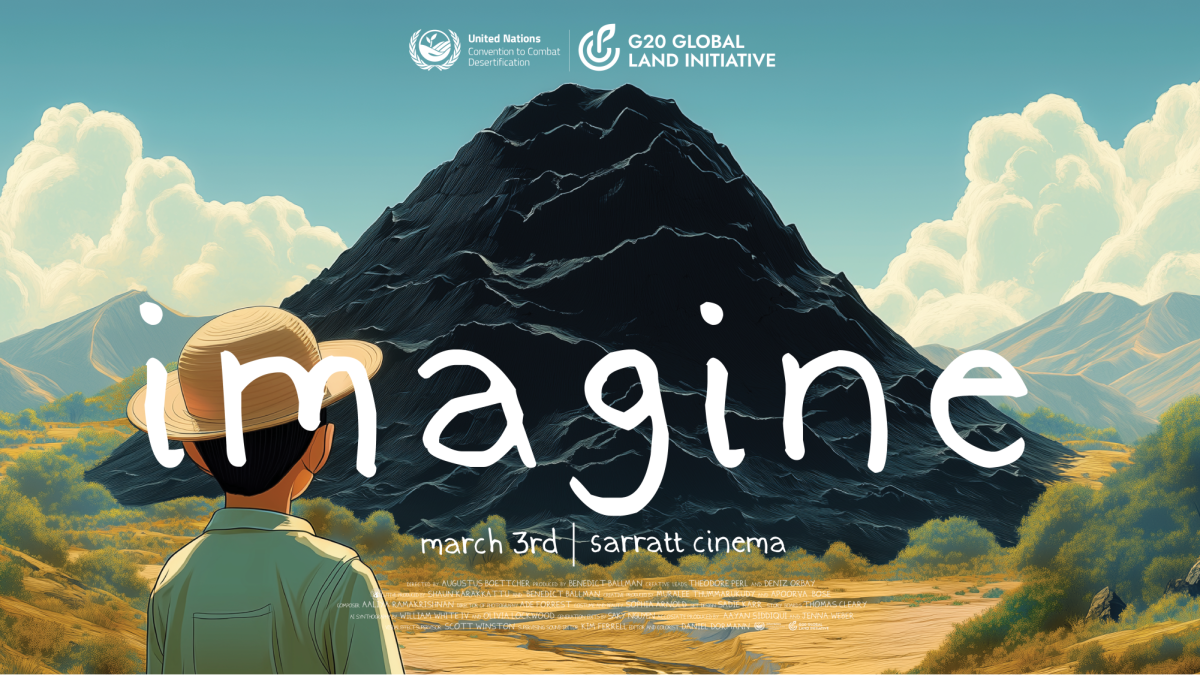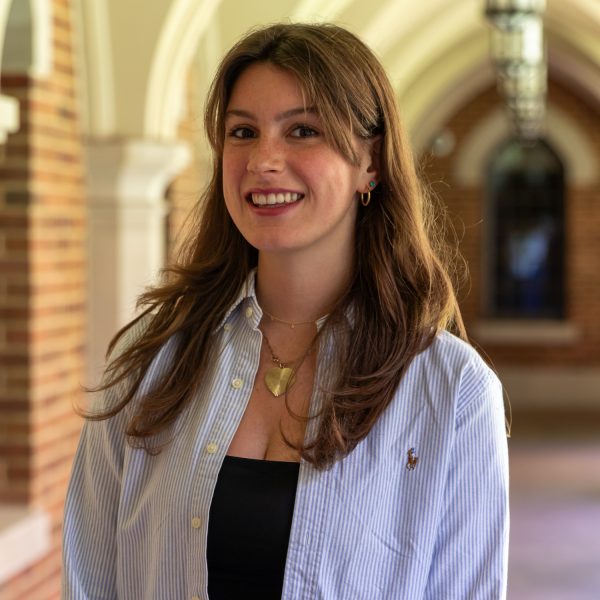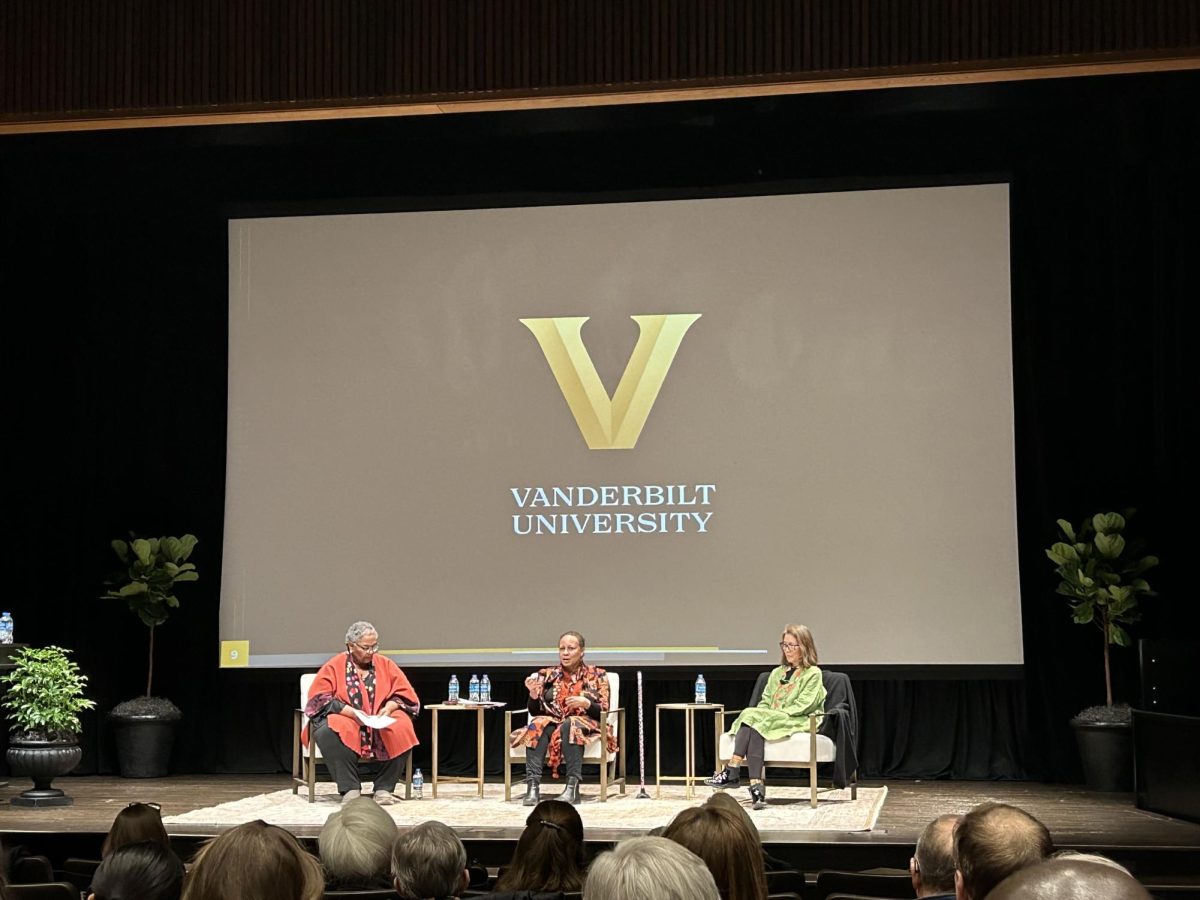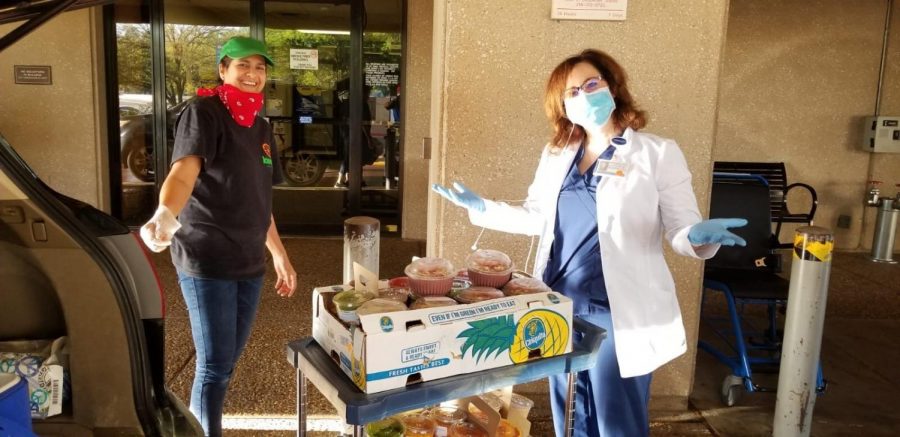When a group of Vanderbilt seniors decided to launch a student-run AI production company, they had no idea how quickly their work would gain international recognition. Tomorrow in Focus, a Vanderbilt-based non-profit production company, is changing the way nonprofits share their initiatives, using artificial intelligence to amplify their impact beyond the philanthropic community. Simultaneously, they aim to reshape the entertainment landscape at Vanderbilt, by fostering a lasting culture of creative storytelling on campus.
Co-founder Shaun Karakkattu stumbled upon a post from Muralee Thummarukudy, director of the Coordination Office of the United Nations Convention to Combat Desertification (UNCCD), expressing interest in creating an AI film after connecting in person at the 28th United Nations Climate Change Conference (COP 28) in Dubai, UAE. Karakkattu responded, eager to help, and reached out to Augustus Boettcher and Benedict Ballman, who had prior experience producing an AI-generated film.
“I had little experience with AI filmmaking — like, baby experience — with a film I produced called ‘On the Dying Grass,’” Boettcher said. “But I wanted to do it, and they trusted Shaun and me to make it happen.”
With that, Karakkattu and Boettcher recruited like-minded Vanderbilt students — including the soon to be director of AI, Theodore Perl, and in-person production coordinator Deniz Orbay — pulling talent from the Vanderbilt creative community, those who had worked on previous student film productions and others interested in operations and logistics. The production of “Imagine” was born.
“It took all of fall semester to create Imagine,” Boettcher said. “It was a marathon that felt like a sprint — we were creating AI visuals until 4 a.m., and then waking up to plan production at 8 a.m.”
That support came from Wond’ry Emerging Tech Lab mentor Ole Molvig, who helped the team navigate the complexities of AI filmmaking. Benedict Ballman, director of operations for Tomorrow in Focus, emphasized how instrumental his guidance was.
“He steered us in the right direction in understanding AI’s potential,” Ballman said. “They’ve been an incredible resource as we continue to grow.”
The team finalized “Imagine” in December and flew with 10 Vanderbilt Students to Riyadh, Saudi Arabia, at a UNCCD COP 16, a UN Summit on combating Land degradation.The film follows a young girl with a surprising vision for her land’s future, aligning with the initiative’s mission to restore 50% of the world’s degraded land by 2040.
Ballman and Boettcher reflected on their experience at the summit.
“We were the youngest there — by at least 10 years,” Ballman said. “It was incredible. We got Blue Zone passes, which are like exclusive VIP credentials. We just felt privileged to be there.”
The film’s production, direction and AI implementation presented a unique challenge, as it was the team’s first time working on a project of this kind. However, through dedication and collaboration, Tomorrow in Focus successfully premiered the film in front of its clients at the G20 booth in Saudi Arabia. Alongside Ballman, Boettcher and Karakkattu, other Vanderbilt students, including Liv Lockwood and William White IV, played integral roles in the project.
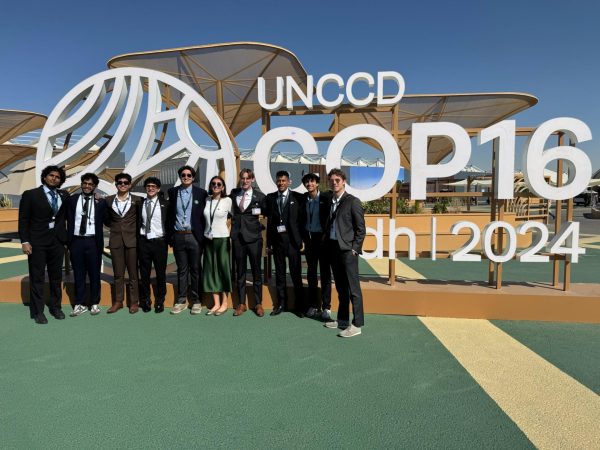
Lockwood, a senior data science minor and the AI Lab lead for Tomorrow in Focus, ensured the film remained ethically responsible in terms of energy and carbon consumption. Alongside being the only woman on the film board, she played a crucial role in the project’s technical execution.
“She was the most trusted,” Ballman said. “You had a tricky shot? You gave it to Liv. When no one else could do it, you gave it to Liv.”
Meanwhile White, senior Cornelius Vanderbilt Scholar and AI Production Lead, drove the production of the film. He worked day and night, start to finish for each second of what we screened in front of the UN.
“Working with Will and Liv was a blessing,” Ballman said. “I genuinely felt so lucky to trust a team like them working so diligently, and focus my attention to other aspects of production.”
The premiere of “Imagine” was met with success, garnering positive feedback from the UN conference audience. Following Saudi Arabia, the film has a busy travel schedule.
Next, the team will bring “Imagine” to Vanderbilt, with a campus screening at Sarratt Cinema on March 3, 2025, followed by a wide release on YouTube. The film will then fly to Switzerland in mid-march to play on the big stage at START Summit, Europe’s most influential startup event. It is also set to premiere at the Seoul 2025 AI Film Festival.
Looking ahead, Tomorrow in Focus is looking to evolve from a one-project pony, to a potential start-up unicorn. They aim to continue working with NGOs to amplify their missions through AI-generated films. They plan to produce more films for the G20 Summit while also exploring ways to bring this technology to marginalized communities, empowering them to use AI for their own storytelling needs.
With the Vanderbilt premiere, the team hopes to foster a stronger entertainment-driven community on campus, inspiring other students to launch their own creative projects and demonstrating that artistic endeavors can have real-world impact beyond Vanderbilt.
“We want to continue to give as many opportunities to students as we can,” Ballman said. “Across our want to bring together a creative community of Vanderbilt leaders.”

